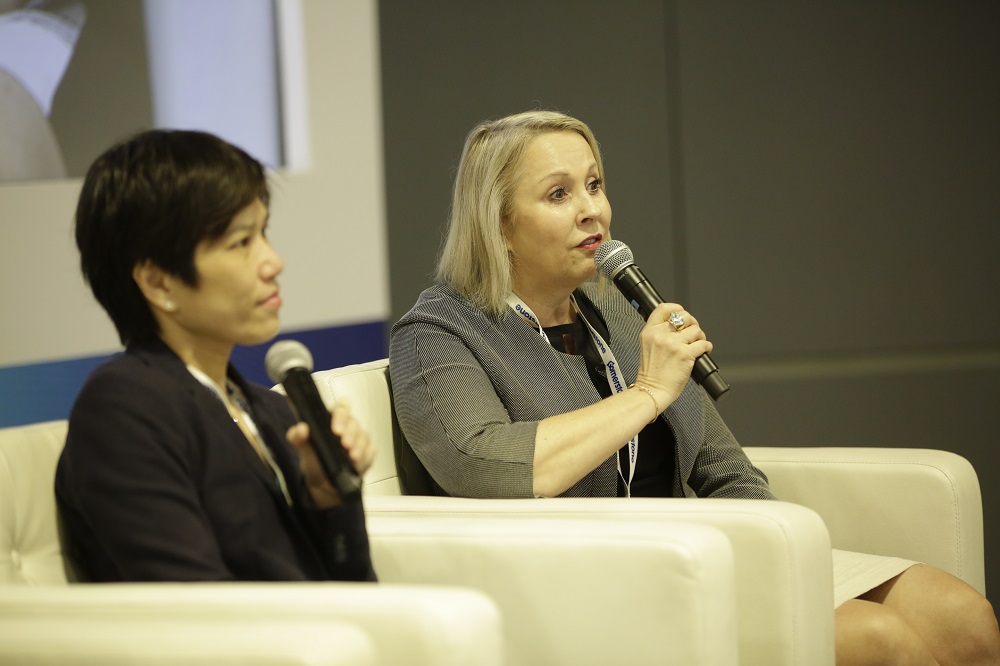Women in STEM: Proactively addressing gender inequality
- HRM Asia Newsroom


The first-ever HR Festival Asia, brought to you by the combined experience of HR Technology Conference & Exposition (US) and HR Summit (Asia), takes over the Suntec Singapore Convention & Exhibition Centre on May 8 and 9. With a line-up of more than 100 speakers across six dedicated streams, and an Expo Hall with more than 100 exhibitors, there’s a little something for everyone at the event. Check out our HR Festival Asia tag for more coverage direct from the event. |
The Asia-Pacific region is home to some of the most dynamic economies in the world. However, gender inequality in the STEM fields – science, technology, engineering and math – can undermine its ability to sustain this growth, HR Festival Asia heard during a panel discussion today.
Dr. Jaclyn Lee, Chief HR Officer, Singapore University of Technology and Design discussed the issue with Siew Choo Soh (pictured, left), Managing Director and Head of Consumer Banking and Big Data Analytics Technology at DBS Bank and Anthea Collier (pictured, right), Managing Director for Randstad Sourceright in Asia-Pacific.
Dr. Lee began by noting that encouraging young females to participate in STEM fields was essential but also not the complete equation; retaining existing talent is equally important. She asked the panel how they tackle this aspect of the problem.
Siew revealed that she believes a supportive environment can help women through times of self-doubt. “Senior executives, both male and female, should be the proactive voice in talent acquisition,” she said.
For Collier, optics is key to retention. “Showcase women employees and create microsites within your website about them,” she explained, “Show that you are like the women you want to attract.”
Both panellists agreed that companies should address unconscious bias against female talent. In making her points, Siew alluded to research by GitHub that showed that machine code written by females has been judged superior to that written by males when the assessors do not know the gender of the code writer.
Dr. Lee added that leaders can play their part by proactively asking their interview teams why a female candidate was rejected after an interview.
She ended the panel discussion on a positive note, saying that while a gender imbalance in STEM fields does exist, data on current trends shows that the gap is narrowing very quickly.






